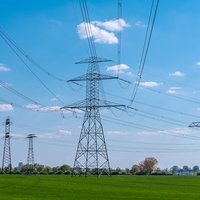Linking Development and Climate Goals in Nigeria's NDC
Study assesses pathways to achieving electricity access and climate goals in Africa's largest economy

Study assesses pathways to achieving electricity access and climate goals in Africa's largest economy

There are 840 million people without access to electricity in the world, and the vast majority of them are in Sub-Saharan Africa. Around one tenth of the world’s unelectrified population lives in Nigeria. The country's nationally-determined contribution (NDC) foresees that over 60 per cent of the pledged greenhouse gas emissions (GHG) reductions will take place in the power sector. But is this target compatible with delivering electricity to millions? Great efforts are being made to deploy renewable energies in electricity generation, but currently diesel- and petrol-fuelled back-up generators supply the vast majority of electricity in the country.
The study "Achieving Sustainable Development Goals in Nigeria's power sector" by Maria Yetano Roche (Research Fellow, Research Unit International Energy Transitions, Division Future Energy and Industry Systems, Wuppertal Institute) and Prof. Dr. Manfred Fischedick, Vice-President of the Wuppertal Institute, among other authors, identified pathways along which Nigeria's power sector might transition up to 2030. Using published data and stakeholder interviews, the authors build on existing knowledge on pathways for electrification via grid extension, mini-grids and solar home systems (SHS) and assess the potential scale-up rates of generation and transmission infrastructure. The results of their bottom-up modelling indicate that Nigeria’s emission commitments could be more ambitious and better aligned with its electrification targets. Unless measures are taken in the near-term, energy poverty and diesel back-up generators will continue to dominate Nigeria's future, with important health and economic implications.
The complete article is published in "Climate Policy" and can be found under the link below.
